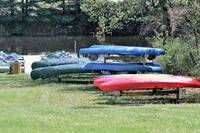I still remember waking up early on cold, crisp mornings with my uncle, the kind where the air bites your cheeks before the sun even thinks about rising. We’d climb into the deer stand, trying to stay awake while the forest slowly came alive. My heart pounded so hard I could hear it when that deer stepped into the clearing. That moment, the stillness, the focus, the connection, is why I hunt.
For service members, veterans, and their families, base hunting programs through MWR (Morale, Welfare & Recreation) make it possible to chase those moments without the barriers that often come with civilian hunting. And while the official websites will tell you the rules, the real value is in the access, the community, and the insider know-how you only get from being part of the military hunting world.
Hunting Opportunities Across Installations
Many U.S. military bases run wildlife management programs that include both big game and small game hunting. These programs keep herds healthy, reduce vehicle collisions, and preserve habitats, but they also create a shared space where military life meets the outdoors.
At SUBASE Kings Bay, deer season runs September–January, and the regulars will tell you the best stands are the ones you hike to before dawn, when the fog still clings to the pines.
At Fort Leonard Wood, 60,000 acres mean you can hunt for years without repeating the same trail, but the real secret is befriending the Wildlife Office staff, who know which zones are hot after a week of artillery drills.

How Outdoor Rec Makes It Easier
MWR’s Outdoor Recreation (ODR) offices aren’t just permit counters, they’re the nerve centers of base hunting.
Permits & Licenses: NAS Whidbey Island requires both a state license and a base permit. Apply mid-week to avoid weekend rush; staff often share intel on which zones are producing.
Safety Courses: Camp Lejeune requires both state and base certification. Treat these courses as networking events — you’ll meet hunters who’ve been on base for decades.
Gear & Rentals: Outdoor Rec sometimes offers archery gear, blinds, or camping kits for checkout. Test-drive gear before buying; one JBLM hunter swears by the base’s loaner blinds for elk season.
Access to Hunting Zones: JBLM uses the iSportsman system to reserve spots and check availability. Use it not just to book, but to track patterns in zone closures.
Regulations to Know Before You Go
Hunting on base comes with extra oversight. Before heading out:
- Carry a valid state hunting license and tags
- Get a base permit (may include background checks and fees)
- Complete required hunter education or safety briefings
- Follow installation rules on weapons, safety gear, transport, and guests
- Check daily updates through the base’s system: RecAccess, iSportsman, etc.
Getting the Most from Base Programs
Beyond the budget-friendly permits and rentals, base hunting offers:
- Built-in mentorship from retired service members
- Access to areas civilians will never see
- A safety culture that mirrors the discipline of the military, making hunts more predictable and secure
- Convenient rentals to avoid expensive gear purchases
Quick Prep Checklist
- Contact Outdoor Rec for dates and rules, ask about “quiet weeks” when training is light
- Secure your state license and tags
- Complete safety training and use it to meet potential hunting partners
- Apply for your base permit early
- Review daily area schedules
- Pack safety gear (blaze orange, first aid kit)
- Plan for harvesting and processing, some bases have on-site coolers

Before You Get into the Tree Stand
On base, hunting isn’t just about filling tags. It’s about carrying forward the military tradition of stewardship of land, of wildlife, and of each other. With preparation, relationships, and a little insider know-how, big game hunting on base becomes more than a pastime. It becomes part of your service story, the kind you’ll remember years later, like a cold morning in the deer stand, waiting for the clearing to come alive.
Disclaimer: This article does not cover every base program or regulation. Always check with your installation’s Outdoor Recreation or MWR office for the latest base-specific rules, and confirm all requirements under your state’s hunting laws before heading into the field.















